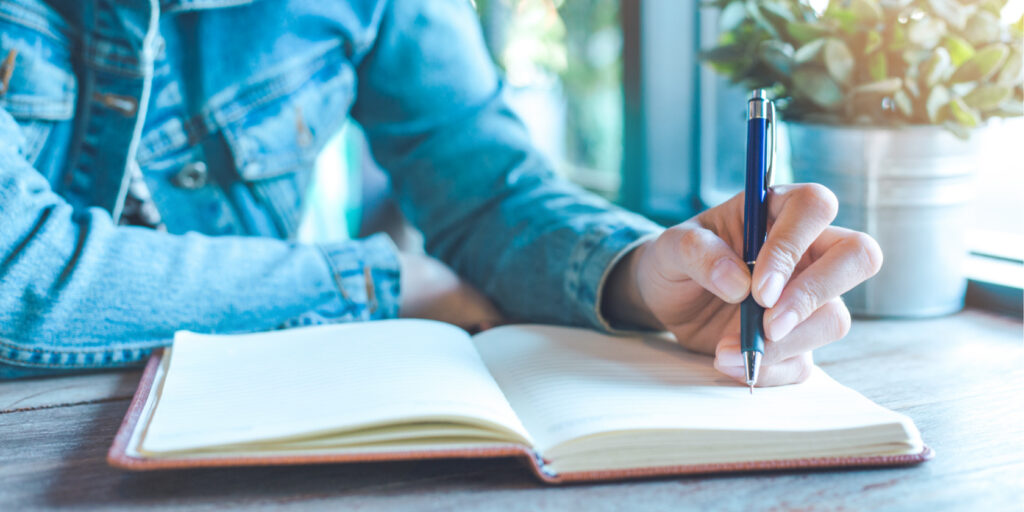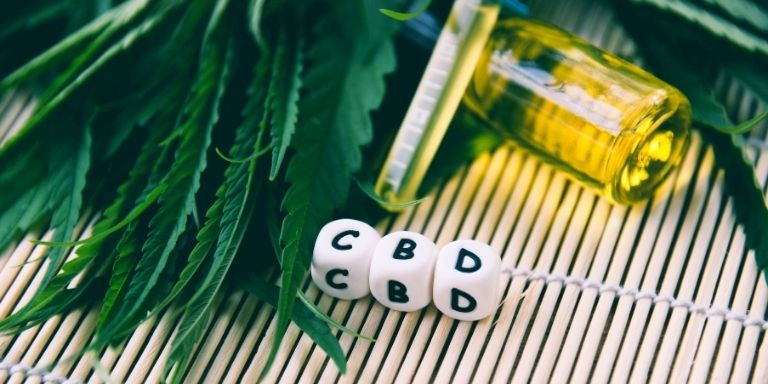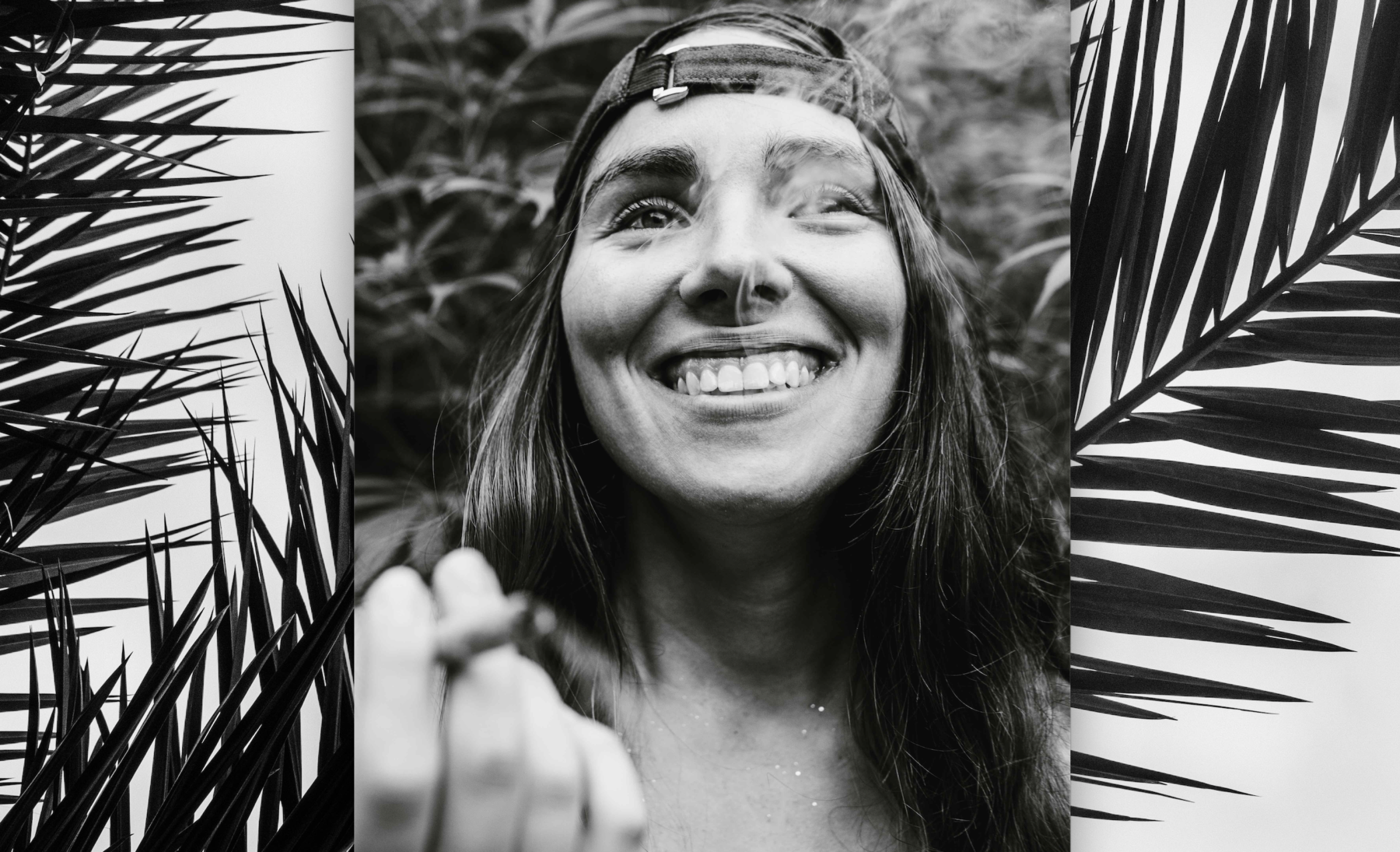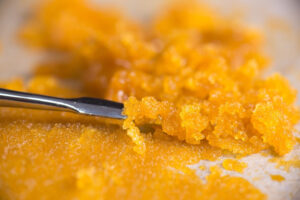If you’re someone who experiences anxiety, you’ve probably already heard your fair share of ways to combat it. From changing your diet or getting more sleep, to our personal favorites such as counting to 10, or your Great Aunt at Thanksgiving dinner suggesting you “just calm down.” But in the best of cases, these unsolicited, cure-all recommendations for combatting anxiety include weed! As we all know, there is no magical cure-all elixir to magically cure anxiety, but research does prove the endocannabinoid system plays a very important role in responses to stress and anxiety.
We spoke with The Higher Path’s Super-Star Budtender, Alex Brooks, who shares insight into her relationship with anxiety, her doctor’s attempts to combat her symptoms with prescription drugs, and ultimately, the revelation that is CBD.
My Relationship with Anxiety & Cannabis

For a little over 6 years, I have been utilizing cannabis medicinally to ease the symptoms of my anxiety and depression. My journey and battle with mental illness did not begin 6 years ago though. I started to suffer from symptoms of anxiety at around the age of 15, and being a minor, was at the will of what my parents and physicians decided was best. I underwent multiple tests ruling out things like, Crohn’s disease, diabetes, thyroid disease, and pretty much anything else under the sun that could possibly be making me feel so god awful. I woke up every morning with intense abdominal pain, suffered from chronic headaches and fatigue, and as a 15-year-old, was not interested in anything a normal teenager should have been. I missed countless hours of school wondering why I couldn’t control my nausea and breathing, wondering if there was something seriously wrong with me. It wasn’t until a few years later, and a few outbursts later, that we decided it was time I got professional help. I saw multiple therapists and psychiatrists throughout my young adulthood and learned a lot about mental health and the many ways to cope and treat symptoms. I was put on Prozac my freshman year of college, and thus was the beginning of the two-year-long experiment with antidepressants and pharmaceutical drugs. When I was on them, I somehow seemed to hate myself more, felt more groggy, and was just generally detached from the world around me. But I guess I didn’t feel quite as anxious, so in my psychiatrist’s eyes, the Prozac was doing its job.
Two years after starting it, I broke up with the Prozac, and a roommate of mine introduced me to the world of self-medicating with cannabis. She suffered from similar symptoms caused by mental illness, and it seemed to really help her function throughout the day, or when she was stressed over exams. The cannabis seemed to help, but it still wasn’t solving all of my problems. Also, living in Tucson, Arizona on a college campus, I was limited to whatever my friends had bought from their coworkers. I was naive and smoked whatever I could get my hands on and expected the weed to do the same thing and feel the same way every time. However, like many patients I talk to, sometimes I would smoke and feel so relaxed and sedated, and other times, I would be left wide awake completely anxiety-ridden. It wasn’t until I obtained my medical card and started going to dispensaries that I realized you could choose the effects of the weed you smoked, and that it actually mattered what the silly name it was given was. My knowledge at the time was still baseline, but at least I was getting somewhere.
My Relationship with CBD
When I started working at The Higher Path I was introduced to the benefits of CBD, especially when it came to anxiety. In fact, I used to swear that CBD “did nothing for me.” I have never been so blatantly wrong about a statement I had never even cared to look into. I tried using the CBD products you could buy at smoke shops or gas stations and got nothing out of it, so I wrote CBD off as another hoax and hopped on the vape cartridge bandwagon, bringing up my tolerance, and doing pretty much nothing else except bankrupting me. The second I learned about the difference between cannabis-derived CBD and hemp CBD, and how and why the “entourage effect” makes using cannabinoids so much more useful, was the second I stopped paying attention to THC percentages, and started paying attention to cannabinoids and terpenes. It also happened to be the second I actually started to get something out of my cannabis.

How High CBD products affect me
When I was first exposed to education surrounding the benefits of CBD and how they work with the endocannabinoid system, I became more interested in how I could get this cannabinoid to help me with my anxiety and the symptoms it caused. Personally, I suffer from intense muscle spasms, abdominal pain, and shortness of breath. The first type of product suggested to me was a 1:1 CBD to THC ratio oil cartridge. The 1:1 ratio is what we in the cannabis industry call the golden ratio. When equal parts THC and CBD work together, it gives a physical and mental relaxation effect that seems to make the anxiety and tension melt away. However, Not everyone is chasing that stoney, THC high, but they still want the benefits. That is where high CBD products come into play. When you ingest a product that is high in CBD and derived from the cannabis plant, there will oftentimes be trace or small amounts of THC present as well. In certain ratios, patients can receive the medicinal benefits of both the THC and CBD, but won’t necessarily experience any sort of psychoactivity.

What I have learned about the benefits of CBD
Unfortunately, there hasn’t been a ton of clinical research done on the effects CBD has on patients with anxiety and other neuropsychiatric disorders. However, the few studies that have been done, have suggested that the use of CBD is beneficial to patients with such disorders. Naturally, I wanted to dive a little deeper and get to the bottom of how CBD is interpreted in the endocannabinoid system and how it responds to disorders like anxiety, schizophrenia, and even epilepsy. Unfortunately, though, it is still relatively unclear what the actual mechanism of action is that aids CBD in decreasing the effects of these disorders.
What multiple recent studies have found, however, is that many patients with anxiety and insomnia who were given high doses of CBD in clinical trials got better sleep, and felt overall more relaxed and sedated. While THC is famous for its very obvious psychoactive effects, CBD has the ability to attack physical symptoms of anxiety such as muscle tension, abdominal pain, etc, giving you the ability to ease symptoms without getting high, making CBD great for functional day-time use.
Check out the wide range of High CBD Products we carry at our dispensary here.





